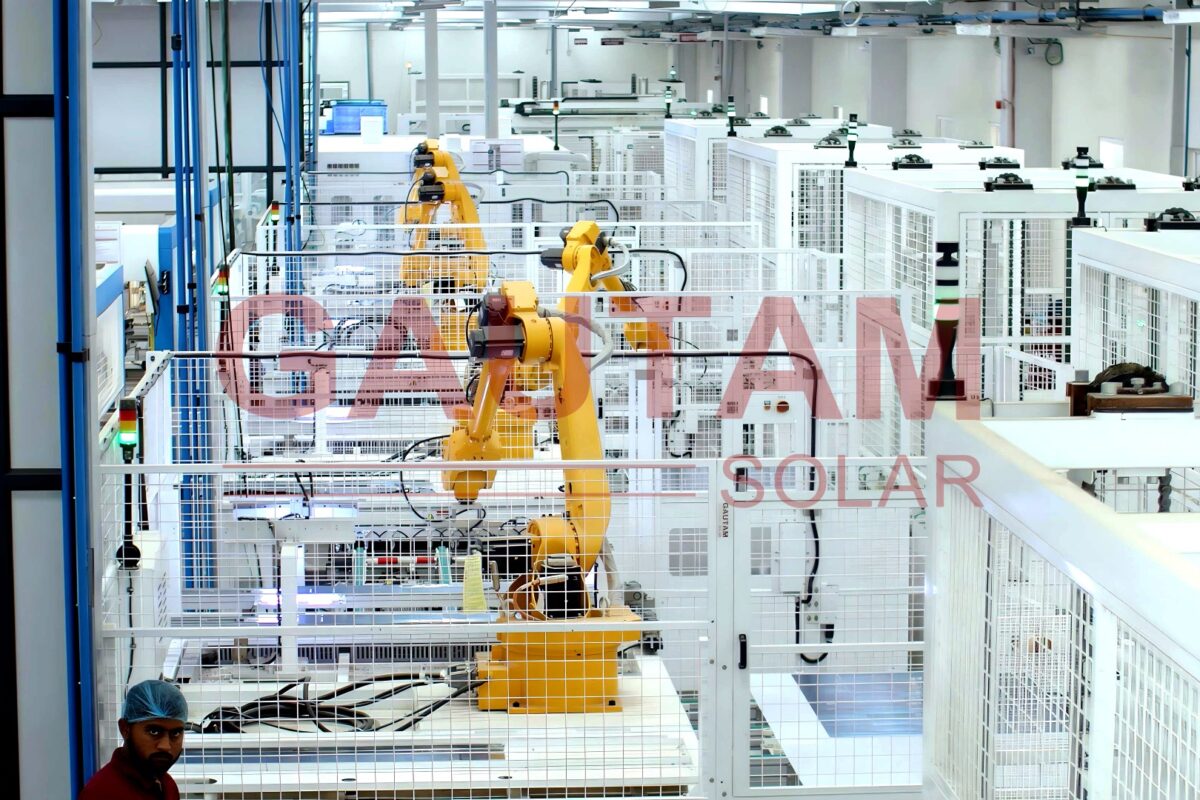Businesses in the micro, small and medium enterprise sector are expected to make a significant contribution to India’s rooftop PV target of 40 GW of installed generation capacity by 2022. However, a scarcity of low-cost financing must be addressed to enable rooftop installation, according to a report by Deloitte and the World Bank’s Climate Investment Funds (CIF).
In response to that finding, Indian Power Minister RK Singh has proposed removing a Rs150 million limit on bank lending to SMEs for renewable energy purposes imposed under the priority sector lending rules. Under the system, Indian banks must prioritize lending to certain sectors but limits are also applied.
Removal of the cap on renewables lending to SMEs – plus an end to a similar limit on such loans to larger retail consumers – will give businesses access to cheap financing for solar rooftops under the Capex model, according to Jignasa Jani Visaria, head of corporate development for rooftop solar engineering, procurement and construction (EPC) company Fourth Partner Energy.
“Banks have to lend as high as 40% of their net bank credit to priority sectors,” said Jani Visaria. “The current cap on renewable energy under PSL [priority-sector lending] is Rs150 million for SMEs and Rs1 million for retail consumers. SMEs comprise 45% of the industrial output. Many of them in the manufacturing sectors with huge power costs, however, cannot avail competitive opex [operating expenditure] tariffs due to their low credit rating. Also, getting bank funding for solar projects is not easy considering the renewable energy sector is getting clubbed under infrastructure lending.
Capex hope
“However, if the cap on PSL by banks to the renewable energy sector goes, these SME players can borrow at subsidized rates under the PSL scheme and put up a solar plant on their roof under the capex [capital expenditure] model. It is a win-win situation as banks fulfil their obligations under PSL with minimum risks as they are lending to an existing borrower, and the SME gets cheap financing for putting up a solar plant which reduces their power bill and adds to the bottom line.”
In another welcome move, minister Singh has asked lenders to categorize renewables as separate from the power sector so funds can flow to clean energy projects.
Corporate power consumers stand to gain from faster implementation of projects and reduced costs of construction, according to Nikunj Ghodawat, chief financial officer at fellow EPC CleanMax Solar.
“The ministry’s recommendation to the Reserve Bank of India to categorize renewable energy into a separate segment from power, and remove the priority sector lending limit for the sector to ensure higher credit financing availability, will give a much needed boost to the sector,” said Ghodawat. “This is absolutely in line with CleanMax Solar’s recommendation earlier this year to remove the cap of Rs150 million per year under priority sector lending for rooftop projects, or at least increase the credit limits significantly and remove it in a phased manner.
“Easy availability of credit and reduced cost of capital will result in speedy implementation of projects and also reduce cost of construction, which can help us pass this benefit to our corporate power consumers.”
This content is protected by copyright and may not be reused. If you want to cooperate with us and would like to reuse some of our content, please contact: editors@pv-magazine.com.









By submitting this form you agree to pv magazine using your data for the purposes of publishing your comment.
Your personal data will only be disclosed or otherwise transmitted to third parties for the purposes of spam filtering or if this is necessary for technical maintenance of the website. Any other transfer to third parties will not take place unless this is justified on the basis of applicable data protection regulations or if pv magazine is legally obliged to do so.
You may revoke this consent at any time with effect for the future, in which case your personal data will be deleted immediately. Otherwise, your data will be deleted if pv magazine has processed your request or the purpose of data storage is fulfilled.
Further information on data privacy can be found in our Data Protection Policy.